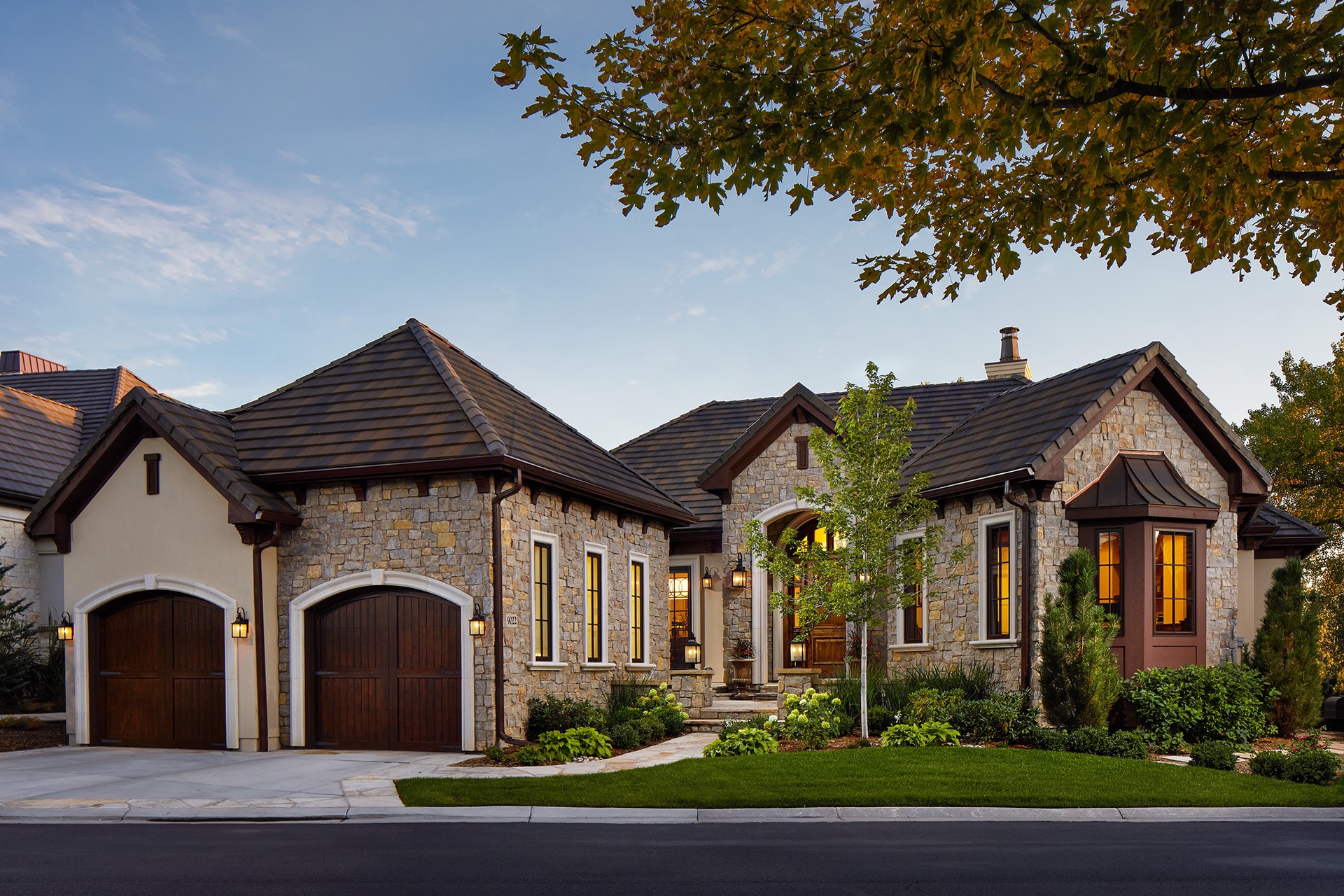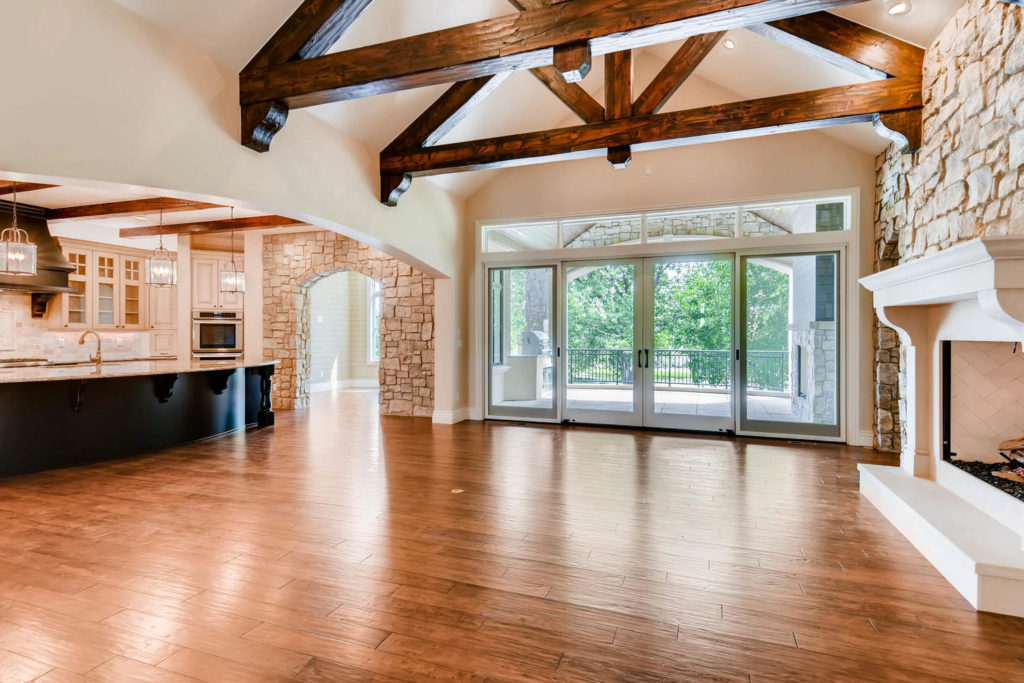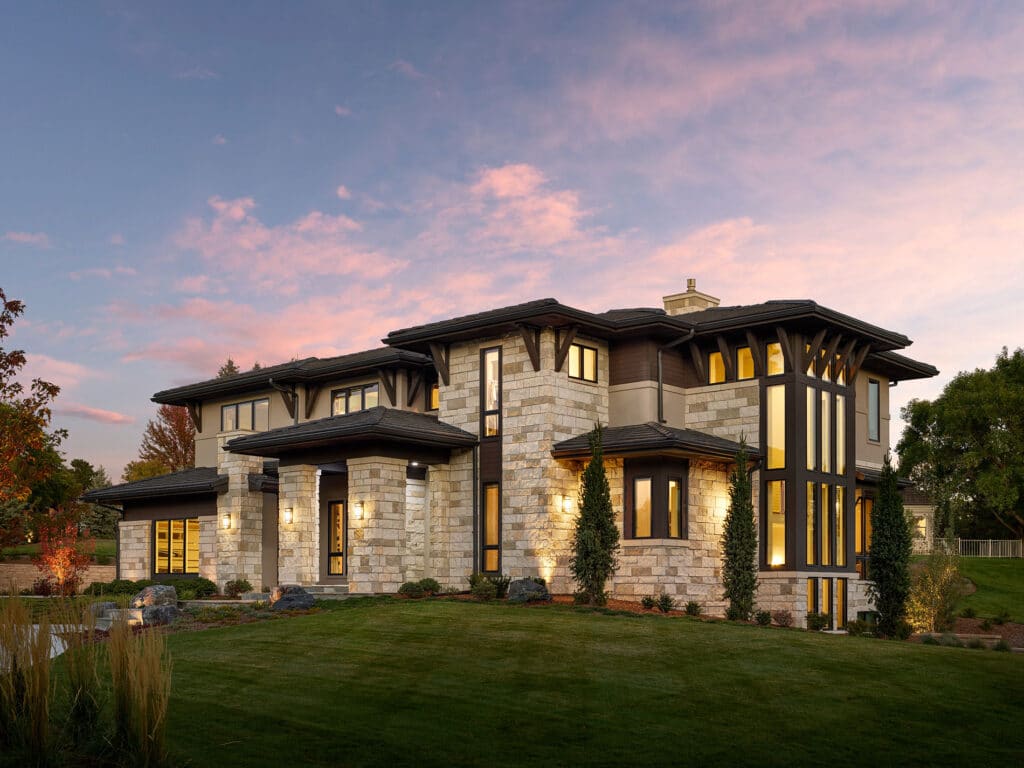- Posts :
As of 2020, roughly 65% of Americans own their homes. Additionally, in recent years, 20% of new construction starts were custom homes. This means that custom construction makes up a relatively small portion of total American housing, especially when you add renters into the mix. There are several reasons for this disparity, including custom construction demand, scalability, and economic concerns that incentivize developers to build traditional non-custom/tract housing.
One major concern often expressed by prospective custom home clients is the assumption that building from the ground up and choosing custom options will result in excessive costs when compared to traditional tract housing. While it is true that many custom homes offer higher up-front costs, this does not necessarily mean that purchasing such a home is a bad financial decision, or that spending less on a non-custom home will pay off in the long run.
Let’s take a look at why custom construction is more affordable than you might think.
Cheap vs. Frugal
There is a substantial difference between being cheap and being frugal. Cheap means simply paying the least amount for something, not taking other factors into account. Frugality considers price but also weighs other issues like durability, usability, and time-investments. For instance, buying a cheap pair of work shoes from Wal-Mart may be cheaper, but it is not the frugal move since a well-made, quality pair of shoes will last way longer- and you’ll look better in the meantime.
You can apply the same logic to buying a home. It is important that you do not hurt yourself down the line by saving a few bucks up-front, as you might buy choosing to purchase a tract/cookie-cutter home. That hurt may be financial, or it may come in the form of dissatisfaction with the property you eventually purchase. There are several reasons why custom construction has the potential to be more affordable in the long term, with the very important caveat that you work with the right builder.
Hidden Costs of Tract/Cookie-Cutter Construction
For most tract home/cookie-cutter builders, cost is the number one priority. Their goal is to get homes up as quickly as possible for the least amount of money that the market will bear. There are several reasons why this approach may not deliver the best results for the end-user, homebuyers, aka you.
If you decide to purchase a custom construction home, you will have a much greater degree of control over what materials get used in your home. Traditional builders will purchase building supplies in bulk, looking for the best possible deal, while aesthetic and quality considerations are secondary concerns at best. With a custom build, you can work with your builder to select the materials that go into your home, including what type of lumber, wiring, stone, brick, and anything in everything that goes into the construction of your home.
Additionally, there may be differences with custom vs. traditional homebuilders when it comes to supply and materials management. For instance, custom homebuilders with a more hands-on approach can ensure that supplies are delivered on time, protected from the elements, and rigorously checked for quality control to make sure nothing substandard ends up in or around your home. Ensuring that your home is constructed with the right materials and quality craftsmanship initially can save you money in costly repairs or replacements down the line.
Custom vs. Production Cost Differences: What Gives?
According to HomeAdvisor, the average cost to build a home sits in between $100-200 per square foot. For custom/luxury construction, that number rises to between $200-500 per square foot. They report that labor makes up roughly 40% of the build cost of a new home, with the remainder being comprised of design fees, permits, and building materials. At first glance, this can seem like a steep premium to pay for a custom home. However, like many other facets of life, things are not always as they seem.
First, you have to remember that there is a wide variance when it comes to building expertise and experience within those who choose to build custom homes. Some projects are undertaken by folks with little to no background in land acquisition, construction, material sourcing, hiring, or any of the skills necessary to build a quality custom or luxury home for a reasonable price. This drives up costs and can lead to a shoddier eventual result.
Conversely, working with a custom home builder can allow homebuyers to access the proficiency, project background, and supply chains that rivals the biggest tract home firms and deliver a better result, for less money than taking the project on as a non-real estate/construction expert. So don’t be scared off by general industry statistics- judge every homebuilder and potential home purchase on their individual merits.
Property Appreciation and Resale Potential
A home is the largest purchase most Americans will make in their lifetime. Many homeowners also have a majority or at least a considerable portion of their investment portfolio or retirement savings in the form of a home. Therefore, property appreciation and resale potential are an integral variable that needs to be taken into account when determining the affordability of your home purchase.
The factors influencing property investment are largely regional- like they say in the real estate industry: “location, location, location.” This also applies to how the home is valued and how it appreciates. For example, in higher-end markets such as San Francisco and Manhattan, construction costs may make up a much smaller percentage of the initial value of a home since the underlying land is so valuable. Homes built in areas like Indianapolis or Omaha usually have a much greater amount of the monetary value of the home tied up in the physical building or buildings on the property, due to the fact that land is substantially cheaper in those cities.
When making financial decisions related to the construction or acquisition of a new home, it is important that you keep this in mind. A 20, 30, or even 40% increase in construction costs may pale in comparison to the potential appreciation value of the land on which the home sits, and thus should not be the sole determining factor used when evaluating the feasibility and affordability of a home purchase.
The Bottom Line
When you decide to create your dream home from the ground up you may sacrifice by paying a little bit more upfront, but in exchange, you’re able to build your ideal living space, purpose-built to suit your life and the lives of your loved ones. Keep in mind that the cheapest option initially may actually be less affordable in the long-run, especially when you take into account appreciation and resale value, as well as the costs of long-term maintenance and repairs on a home.
Unless you’re a billionaire or royalty, cost is always going to play a role in your home search. But sometimes in life, you can have your cake and eat it too- after all, what’s the point of baking a cake if no one is going to eat it?
Found the perfect lot? Already own land? Call us today to schedule your free feasibility estimate! Know your total project cost before you commit to any decisions. We pride ourselves on a customer-oriented experience, always putting your needs first. You can reach the Thomas Sattler Homes Sales Team at <a href=”tel:7204493562″>Call (720)449-3562</a> or online at ThomasSattlerHomes.com.



